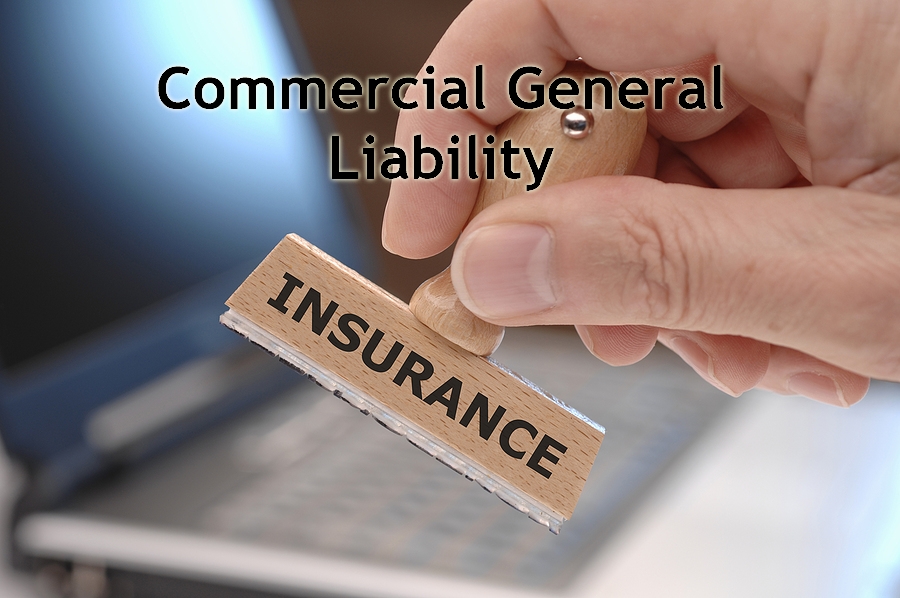General commercial liability insurance is a vital safety net for businesses of all sizes, offering protection against a wide range of financial risks. This type of insurance acts as a shield, safeguarding your company from the potentially devastating consequences of lawsuits, accidents, and property damage caused by your operations or employees.
Think of it as a financial guardian angel, ensuring your business can weather the storms of unexpected events. General commercial liability insurance provides coverage for a multitude of scenarios, including bodily injury, property damage, advertising injury, and personal injury. It helps you navigate the complexities of legal claims, covering legal defense costs and potential settlements.
Key Coverages of General Commercial Liability Insurance
General commercial liability insurance is a crucial component for businesses of all sizes, offering protection against a wide range of risks. This type of insurance policy provides financial coverage for legal liabilities arising from property damage, bodily injury, and other incidents that may occur during the course of business operations. Understanding the key coverages included in a general commercial liability insurance policy is essential for businesses to effectively manage their risk and protect their financial well-being.
Bodily Injury and Property Damage Liability
This coverage is the cornerstone of general commercial liability insurance, offering protection against claims arising from injuries to third parties or damage to their property caused by the insured’s business operations. This coverage extends to various situations, including accidents on the business premises, product defects, and negligent acts of employees.
For example, if a customer slips and falls on a wet floor in your store, resulting in a broken leg, bodily injury liability coverage would help pay for the customer’s medical expenses, lost wages, and potential legal costs.
Personal and Advertising Injury Liability
This coverage protects businesses against claims arising from non-physical injuries, such as libel, slander, copyright infringement, and false advertising. It covers situations where a business’s actions or communications cause harm to the reputation or business interests of others.
For example, if your business mistakenly uses a competitor’s trademark in an advertisement, personal and advertising injury liability coverage would help pay for legal defense costs and any financial settlements.
Medical Payments Coverage
This coverage provides medical payments to individuals who are injured on the insured’s premises, regardless of fault. This coverage is designed to cover immediate medical expenses and promote goodwill with injured parties.
For example, if a delivery driver trips and falls on your property, medical payments coverage would pay for their medical expenses, even if the accident was not your fault.
Products and Completed Operations Liability
This coverage protects businesses against claims arising from injuries or damage caused by their products or services after they have been delivered or completed. This coverage is essential for businesses that manufacture, distribute, or sell products or provide services.
For example, if a customer is injured while using a product manufactured by your company, products and completed operations liability coverage would help pay for the customer’s medical expenses, legal defense costs, and potential product liability claims.
Defense Costs Coverage, General commercial liability insurance
General commercial liability insurance typically includes coverage for defense costs, which are the legal expenses incurred in defending against claims. This coverage helps businesses pay for attorneys’ fees, expert witness fees, and other legal costs associated with defending a lawsuit.
For example, if your business is sued for a slip-and-fall accident on your premises, defense costs coverage would help pay for the legal expenses involved in defending the lawsuit.
Claims Process and Procedures
Navigating the claims process can feel overwhelming, but understanding the steps involved can make it much smoother. Your commercial liability insurance policy Artikels the procedures for filing a claim, and your insurance company will guide you through the process.
Filing a Claim
Once an incident occurs that may fall under your commercial liability insurance coverage, you need to promptly report it to your insurance company. This ensures your claim is processed efficiently.
- Contact your insurance company: Reach out to your insurance agent or the insurance company directly to report the incident. Provide details about the event, including the date, time, location, and nature of the incident.
- Provide necessary documentation: You may need to submit specific documents to support your claim. These can include police reports, incident reports, medical records, or any other relevant documentation.
- Follow instructions: Your insurance company will provide instructions on how to proceed with the claim, including deadlines for submitting information. It is essential to follow these instructions carefully to avoid delays or complications.
Claim Investigation and Resolution
After filing your claim, your insurance company will investigate the incident to determine its validity and coverage.
- Investigation process: The insurance company may contact witnesses, review documentation, and conduct inspections to gather information about the incident.
- Negotiating a settlement: Once the investigation is complete, the insurance company will assess the claim and determine the amount of coverage. You may be able to negotiate a settlement amount with the insurance company.
- Claim resolution: Depending on the outcome of the investigation and negotiations, the insurance company will either approve or deny the claim. If approved, the insurance company will pay the agreed-upon settlement amount.
Tips for Maximizing Claim Success
Here are some tips to increase your chances of a successful claim:
- Document everything: Maintain detailed records of all incidents, including dates, times, locations, and any relevant details. This documentation can be crucial in supporting your claim.
- Cooperate with the insurance company: Respond promptly to all requests for information and cooperate fully with the investigation process.
- Understand your policy: Familiarize yourself with the terms and conditions of your commercial liability insurance policy. This will help you understand your coverage and the claims process.
- Seek legal advice: If you are facing a complex claim or have questions about your rights, it is advisable to consult with an attorney.
Importance of Adequate Coverage

It’s crucial to ensure that your general commercial liability insurance coverage is sufficient to protect your business from financial ruin in the event of a claim. Inadequate coverage can leave you vulnerable to significant financial losses, jeopardizing your business’s stability and future.
Risks Associated with Insufficient Coverage
The potential consequences of being underinsured are significant and can have a devastating impact on your business. Here are some of the risks associated with insufficient general commercial liability insurance coverage:
- Financial Ruin: Insufficient coverage can leave you responsible for covering the entire cost of a claim, potentially leading to bankruptcy if the claim exceeds your policy limits.
- Legal Expenses: Even if the claim itself is relatively small, the legal costs associated with defending yourself in court can be substantial. Without adequate coverage, you may have to pay these expenses out of pocket.
- Loss of Reputation: A large claim that you cannot fully cover can damage your business’s reputation, making it difficult to attract new customers and retain existing ones.
- Business Interruption: If you are forced to close your business temporarily due to a claim, insufficient coverage can leave you without the financial resources to cover your operating expenses during the downtime, leading to further financial losses.
Consequences of Being Underinsured
The consequences of being underinsured can be severe and far-reaching, impacting your business’s financial stability, reputation, and even its future.
- Financial Hardship: The most immediate consequence of being underinsured is financial hardship. If a claim exceeds your policy limits, you will be responsible for covering the remaining costs, potentially putting your business in financial jeopardy.
- Legal Battles: Insufficient coverage can lead to protracted legal battles as you try to negotiate with claimants or defend yourself against lawsuits. These legal battles can be costly and time-consuming, further straining your resources.
- Business Closure: In extreme cases, being underinsured can lead to the closure of your business. If you are unable to cover a large claim or the legal costs associated with it, you may be forced to shut down your operations.
- Damaged Reputation: Being unable to fully cover a claim can damage your business’s reputation. Customers may lose trust in your ability to provide reliable services or products, and potential investors may be hesitant to work with you.
Real-World Examples
There are many real-world examples of businesses that have faced financial hardship due to insufficient coverage. For instance, a small restaurant in a bustling city was sued for a slip-and-fall accident by a customer. Their general commercial liability insurance coverage was insufficient to cover the entire settlement amount, forcing them to close their doors after years of operation. Similarly, a construction company was held liable for a workplace accident that resulted in a worker’s injury. Their inadequate insurance coverage left them responsible for significant medical expenses and legal fees, severely impacting their financial stability.
Ultimate Conclusion: General Commercial Liability Insurance
In a world where unforeseen events can disrupt even the most well-planned businesses, general commercial liability insurance stands as a beacon of security. It provides a crucial layer of protection, offering financial peace of mind and the ability to focus on your core operations without the fear of crippling financial burdens. Understanding the nuances of this essential coverage is vital for any business owner, enabling them to make informed decisions that safeguard their future.
General commercial liability insurance protects your business from various risks, including property damage and bodily injury. This coverage often extends to your company vehicles, but it’s important to remember that it doesn’t cover accidents specifically related to your vehicles.
For comprehensive protection, you’ll need dedicated auto car insurance that addresses potential liability and damages arising from car accidents. General commercial liability insurance serves as a broader safety net, while auto insurance provides specialized protection for your fleet.
